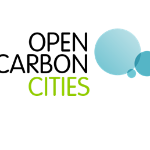
Open Data Standard for Community Greenhouse Gas Emissions by OpenCarbon: Cities
 Ian Shearer Mar 26, 2013 04:34 |
Thanks for starting this proposal Valarie. I think it is important that communities acknowledge the size of their GHG baseline as one of the important steps to sustainable reductions in emissions.
I would also like to see discussion on:
1) who should be the owner/guardian of the community emissions profile?
2) which standard or protocol should we use?
3) what are the relative merits of such standards and protocols?
4) what should be the minimum amount of information reported?
4) where should we openly present / declare our community emissions profile?
Regards
Ian Shearer
|
 Prathmesh Chourey Mar 28, 2013 06:16 | Proposal contributor
This is a very good idea Valarie and Ian you points are very valid too.
1. The owner for the community emission profile could be the regulatory authority of that region/city.
2. IPCC guidelines could be used, however the framework could be customized for the city/region to suit the requirements of the sector/ community. Also the format in which they store the data should be considered
3. Scope 2 level emissions could be used to determine baseline as it covers emission inventory quiet comprehensively.
4. A online web-portal for declaring community emissions is the first thought which comes to m mind...
|
 James Greyson Mar 31, 2013 03:06 |
Helpful comment from @MelindaRooke on twitter:
“@ClimateCoLab:...Standard for Community Greenhouse Gas Emissions: bit.ly/ZTuFyd” @worldresources has a great GreenhouseGasProtocol.
|
 Pia Jensen Mar 31, 2013 09:58 |
I understand this to be a web based project, but would like to see some connecting aspect for people with have little or no access to the internet as is the case in many developing countries (and for those whose lives allow no time for internet activity). How might this project connect, in real-time, to those whose lives do not intersect with the internet?
|
 Nishadh K.a. May 1, 2013 10:25 |
Hi,
There are open data standards are available, for example Sensor Web Enabelment specifications. Though it is actually standardizing the sensors which generatee the data, that would be a good start. http://en.wikipedia.org/wiki/Sensor_web.
For Data API, the BEACON (pls see this link http://beacon.berkeley.edu) project will be a good example for CO2 monitoring and data dissemination.
|
 Kara Reeve May 28, 2013 11:19 |
Hello, Although I am very supportive of this project, it seems to be more focused on climate change mitigation, and not adaptation. An explanation of the linkages to adaptation would be helpful.
Cheers,
Kara
|
 Valerie Moye Jun 8, 2013 09:53 | Proposal contributor
Hello all. Thank you so much for the thoughtful comments and information.
Kara - you are right – this is absolutely a climate change mitigation rather than an adaptation proposal, so it doesn’t match this competition exactly; however, I felt that it matched the Urban Adaptation competition better than any others. The “where” (Cities and Metro Regions) and “who” (Municipal/Local Gov) match very well. At a minimum, I hoped to use the Climate Co.Lab competition as a platform to share the idea, find collaborators, and gain feedback. I believe we can submit a proposal under multiple competitions, so if you have an idea of where this proposal may fit better, I’d love to hear your thoughts.
Ian – the questions you posed a very important. You will see that I included them in the proposal – I think they deserve an open forum discussion as part of the process in developing an open data standard.
PJ – You asked a great question about inclusivity for developing countries. I suspect that in most developing countries there is enough internet connectivity in larger cities that they could find and utilize an open data standard. They would likely need greater technical assistance for implementation, and we would certainly need to make sure the standard is discoverable in multiple languages. However, conducting GHG inventories and reporting with an open data standard would definitely be a challenge for more rural communities without internet access.
Re: protocols – I have been working with a programmer to develop a potential open data standard for urban GHG emissions, but we are at a point where the design of the standard will depend on the GHG inventory protocol we chose. The two protocols we looked at were the ICLEI US Community Protocol and the WRI Global Community Protocol. I would be very interested in hearing feedback from (1) practitioners on the pros and cons of these (and other) protocols; and (2) from the protocol creators in whether or not you expect these protocols to converge in the near future.
Thanks!Looking forward to more comments/questions/ideas.
|